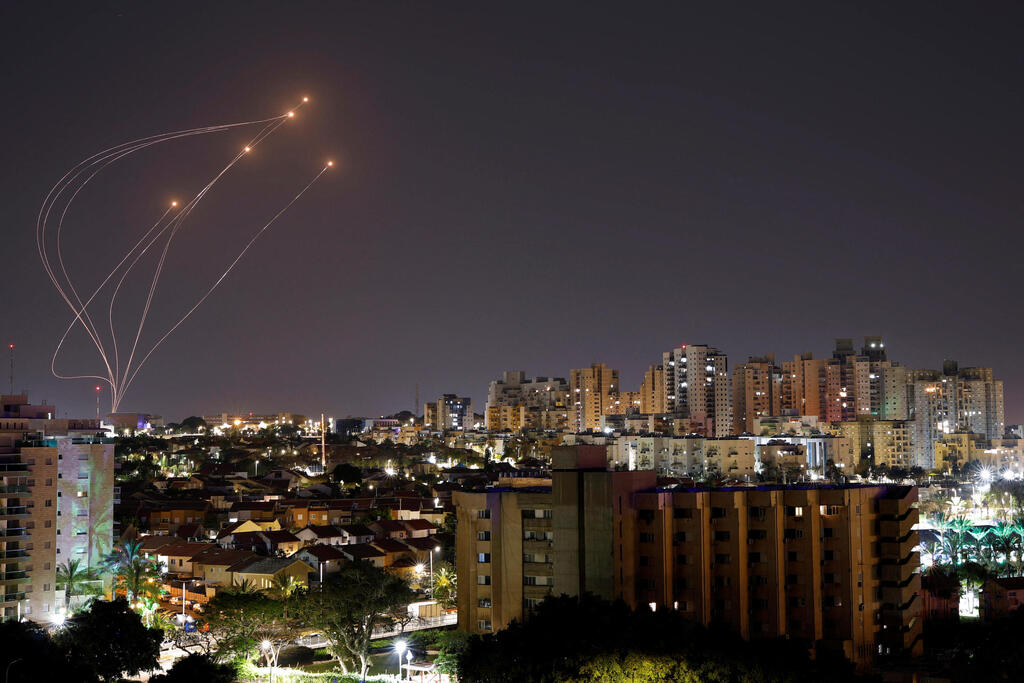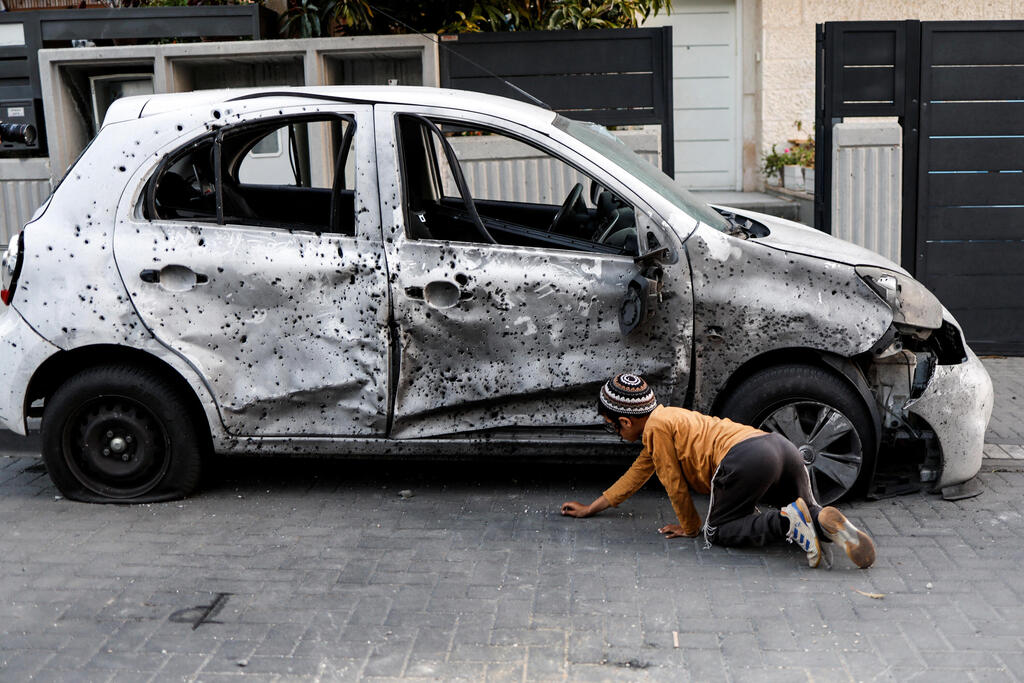It is very difficult to describe and understand the small things, the minute and intimate events that take place in our homes in Sderot and other communities around the Gaza Strip border during each round of cross-border violence.
Other stories:
Even if we think we understand - and sometimes we are exposed to images and videos that hit us right in the heart - it is still far from the real thing. It is also difficult to describe in words. But deep inside our homes, within our families, and especially our children, the years-long security situation is giving its signs.
2 View gallery


Iron Dome missile defense system in action over the skies of Ashkelon
(Photo: Reuters)
The sprint for the bomb shelter, the whistling of falling rockets, the tears, panic, and terror, the questions the children ask without answers, the sleepless nights, and restless sleep - this is the reality around these parts. It is difficult for anyone who doesn't live here to understand, even if they think they are appalled, in routine and in an emergency.
In every home in the Gaza border area, sirens and explosions jolt the soul, and there are unspoken consequences. Why? Because the anxious response is an intimate matter which not everyone feels comfortable sharing. They are transparent shock victims if you will. When you meet them, you won't feel a thing; they will even smile and say that everything’s fine, but that's far from the truth.
And you know what? These people are the majority. The silent majority. Among mental health professionals, who know about their lived experience, they are considered a "challenge". That is, the challenge is to locate them, pull them out of their bubble of silence, and take care of them - because otherwise they could erupt and cause more damage.
2 View gallery


A child picks up shrapnel from the ground after Gaza rocket crashes near his home in Sderot
(Photo: Reuters)
What will happen to a normal person whose whole life swings between routine and emergency, with uncertainty and under constant mental pressure? We are people, not robots. From a young age, even in kindergarten, we were taught that there is a cause and effect to everything in life. So here is the result of more than 20 years of rocket fire: this is how people look and feel. To which endpoint exactly do you want to bring us?
The residents of the south have already passed their breaking point, more than once. I know that the government and the army expect us to demonstrate resilience and determination in spirit of the generation of Israel’s founding.
Okay, understood, clear. But we are not the generation of 1948, with all due respect to this wonderful generation. In their time, they paid a price for a better and calmer future. What will someone from that generation have to say if we go back in time and tell them that while much like they slept in bunkers, we’re sleeping in bomb shelters? The founding generation did not fight for this reality.
 Matan Tzuri
Matan Tzuri From Tuesday afternoon until the next morning, residents living throughout the entire Southern region halted their lives and entered bomb shelters because Islamic Jihad's decided so. Not us.
At the start, noon, after 20 minutes of rocket fire, the terrorist group decided they could return to normalcy and stopped firing for a few hours. Where have we heard of something like this before? Well, right here in Israel.
And what does it mean for us? That everything is canceled in an instant: classes, transportation, concerts, hangouts. Complete shutdown. This transition from routine to emergency happens within seconds, a feeling your stomach is turning, an effect that even a rollercoaster in an amusement park cannot achieve.
It is unbearable. Do you know how many parents got on that rollercoaster Tuesday afternoon, with their children not by their side - just returning from school or on their way to see friends - and sirens and explosions going off all around? There were no more places in the rollercoaster’s cars. Just imagine how I felt when it all began and my children didn't answer the phone.
- Matan Tzuri is a Yedioth Ahronoth and Ynet correspondent and lives in the Gaza Strip border area

